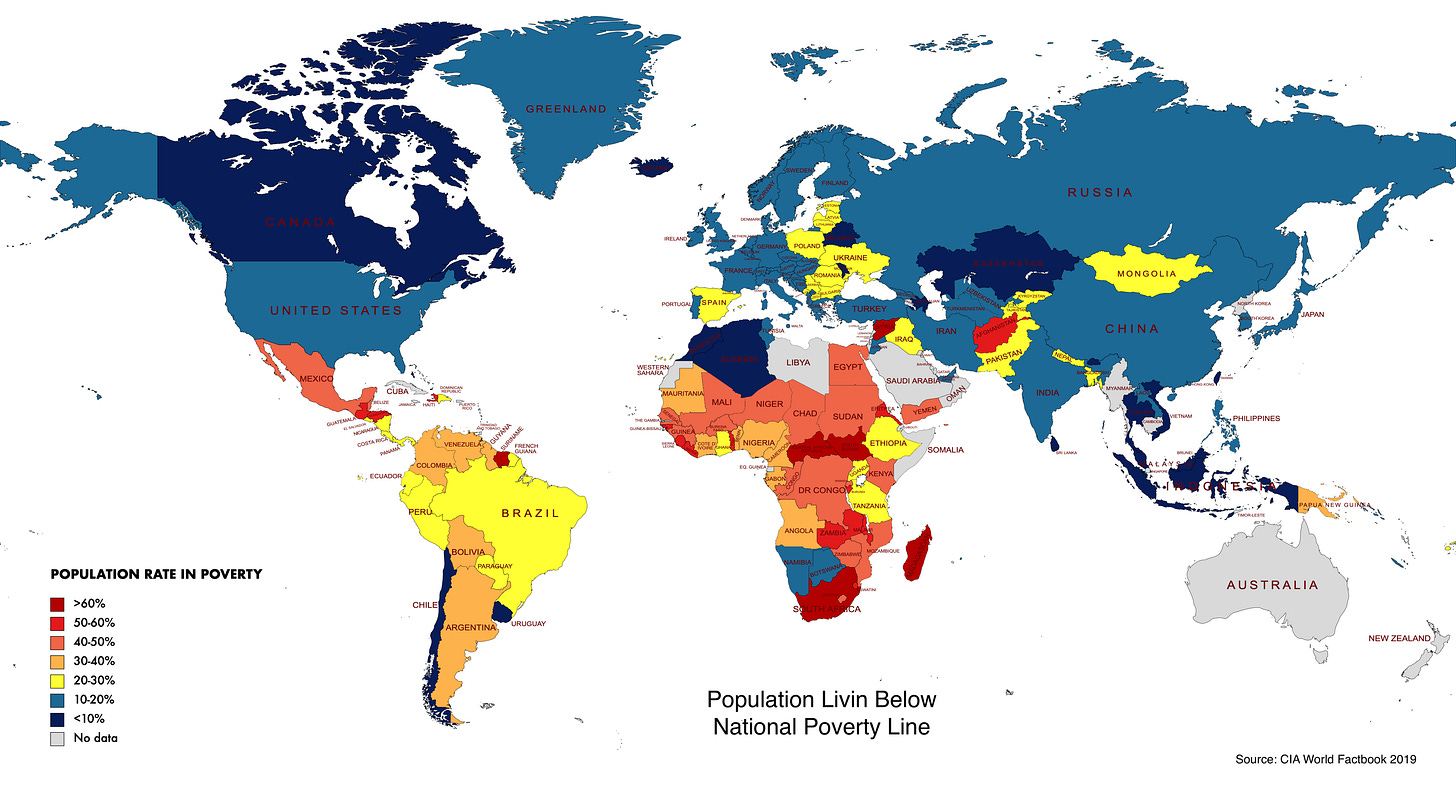The Inevitability of Material Poverty
Part 2 | What Are You Willing To Give Up? | There is no real holistic awareness that could eradicate poverty | A Statement From DR Rawson |

Editorial by Dr. Gabriella Kőrösi
What Are You Willing To Give Up?
We consume so many things in our lives. many people live way beyond the level of poverty. We collect “things” and surround ourselves with “stuff”. The question is how much of that “stuff” is needed? How many things are sitting in a closet that can be used by someone else? Do we truly need the next new thing? Growing up I used to be excited about getting something new. Later it was nice when I could afford an article of new clothing and did buy more than what I needed. I learned through losing most of our belongings in a house fire that things do not matter much. People and connections matter. Now when I buy a new piece of clothing I have a rule to donate at least two or more. I am more and more critical of what I need and working hard on not buying things just because they are nice. I am assessing my surroundings and decreasing clutter in my life.
I believe that life can be more comfortable with fewer things in it. Life can be more joyful when we can work together and provide for others with what we have. A wonderful friend of mine DR Rawson worked and created multiple organizations to help homeless people. I am grateful for his wisdom and experience to be able to help others. In his article The Ripple Effect DR states: “There are so many stories of people helping people. It only takes one person to change or save the life of another. You could be that person.”
I am very excited about our mini-series launched last week with the amazing collaboration with Karsten Ramser a wonderful author and poet. He dives into the question of the inevitability of material poverty. The series will have 6 mini sections coming out every Wednesday.
The Inevitability of Material Poverty Part 2
There is no real holistic awareness that could eradicate poverty.
By Karsten Ramser
When it comes to what matters, we are interested in our poverty; the poverty of others comes second. These are harsh words, and they contradict our humanistic attitude. There is an obvious gap between what we want/desire and reality. Aspiration and reality.
At this point, I would like to point out once again that it is not a question of portraying our collective consciousness as false or pathological.
It is absolutely logical that we think of ourselves and our immediate community first when we live on the first two levels of consciousness. These are the pre-personal and personal levels.
I will support my thesis with some examples that symbolize that we have a selective and limited perspective when it comes to poverty.
Why is growing poverty a top issue today and the fact that 25,000 people starve to death every day is not?
Why don't we give 10% of our income to those in need?
Instead of buying a new car every four years or constantly "needing" new things, we could give this money to the poor.
Instead of going on vacation, we could stay at home and donate the money.
Of course, we will find all sorts of reasons why we can't do that, and they will seem perfectly logical to us. And from the perspective of pre-personal and personal consciousness, it makes sense. It's completely pointless to discuss it. It's like trying to explain to a child what it means to be an adult. On the first two levels of consciousness, we cannot imagine a reality that goes beyond our own vision. At the transpersonal level of consciousness, we understand very well that poverty is an expression of consciousness.
It is not about having basic needs covered, but about simply consuming what is necessary and sharing, giving away, or donating everything beyond that. This is what we do when we realize the higher levels of consciousness.
A Statement Regarding This Post
By DR Rawson - The Possibilist
I objected to Part 1. The information given does not reflect reality. I object to Part II for the same reason.
Just because someone has a belief that something is true, doesn’t make it so. Mr. Ramser has his point of view. He can shout it from the rooftops and has the right to do so.
What he does not have the right to do is associate my name with his opinions.
My apologies to anyone whose also been offended by this article.
DR Rawson - The Possibilist







Many times it can be a very difficult situation to try to help someone. I used to carry extra granola bars, oranges, and apples in my car because the exit I took off the highway always had a long line to get off and there was someone each day with a sign for food. I remember one specific incident when I offered an apple and the man asked me for the orange I had since it was easier to eat with his teeth. It was a simple exchange, yet I saw the pain in his eyes not being able to eat an apple anymore.
Knowing poverty, I think and live economically.